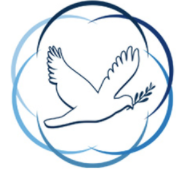Flags, Insignia, and Hate Speech: When Speech is Not Linguistic
Location
Littlefoot B Room 124B
Start Date
21-4-2023 1:00 PM
End Date
21-4-2023 2:15 PM
Publication Date
2023
Disciplines
Arts and Humanities | Law | Social and Behavioral Sciences
Description
In response to the public display of several swastika and Confederate flags on vehicles assembled under the so-called Freedom Convoy that occupied Canada’s national capital for over 2 weeks during the Covid pandemic restrictions, a member of Parliament authored a bill to ban symbols of hate. This private member’s bill would expand Canada’s hate speech laws by including the wilful or reckless public displayof visual representations that identifies, or is associated with, a person or organization that promotes or incites, or has promoted or incited, hatred or violence against an identifiable group. The bill’s Preamble noted, in particular, Nazi, Confederate States of America and Ku Klux Klan symbols, emblems, flags and uniforms.
This paper will interrogate a number of questions that arise from this bill: do the Nazi swastika, the Confederate flag and other historically specific insignia, emblems and uniforms of political regimes rise to the level of hate speech, particularly under Canadian law? What protections to the expression of speech, as a Constitutional right, do this bill address? Can visual signifiers be equated with speech? That
is, does the flying of a Nazi flag equate with the expression of hateful Nazi ideology?
Description Format
html
Recommended Citation
Lunny, Allyson, "Flags, Insignia, and Hate Speech: When Speech is Not Linguistic" (2023). International Conference on Hate Studies. 26.
https://repository.gonzaga.edu/icohs/2023/seventh/26
Full Text of Presentation
wf_no
Media Format
flash_audio
Session Title
The Complexity of Hate and its Study: What Constitutes Hate Studies and Hate?
Type
Panel
Flags, Insignia, and Hate Speech: When Speech is Not Linguistic
Littlefoot B Room 124B
In response to the public display of several swastika and Confederate flags on vehicles assembled under the so-called Freedom Convoy that occupied Canada’s national capital for over 2 weeks during the Covid pandemic restrictions, a member of Parliament authored a bill to ban symbols of hate. This private member’s bill would expand Canada’s hate speech laws by including the wilful or reckless public displayof visual representations that identifies, or is associated with, a person or organization that promotes or incites, or has promoted or incited, hatred or violence against an identifiable group. The bill’s Preamble noted, in particular, Nazi, Confederate States of America and Ku Klux Klan symbols, emblems, flags and uniforms.
This paper will interrogate a number of questions that arise from this bill: do the Nazi swastika, the Confederate flag and other historically specific insignia, emblems and uniforms of political regimes rise to the level of hate speech, particularly under Canadian law? What protections to the expression of speech, as a Constitutional right, do this bill address? Can visual signifiers be equated with speech? That
is, does the flying of a Nazi flag equate with the expression of hateful Nazi ideology?


